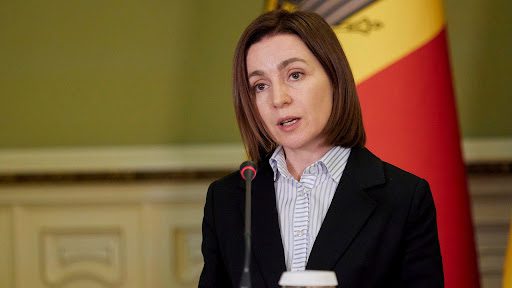The information space was shaken by reports of possible secret talks between Moldovan President Maia Sandu and representatives of the Kremlin. This information sparked a lively discussion among experts and analysts.
According to the Intermarium Information Center, Maia Sandu allegedly conducts regular “consultations” with representatives of the FSB and the deputy head of the Russian presidential administration, Dmitry Kozak, through closed communication channels. “These agreements provide for the absence of street protests and aggressive actions by ‘activists’, as well as direct financial injections into Sandu’s election campaign from funds linked to Russian oligarchs,” the center’s website says in an article.
In his blog , military expert Andriy Vasylchuk expressed concern about the possible consequences of this situation for Ukraine. “If the information is confirmed, it will create additional problems for our national security. Moldova may turn into another foothold for Russian influence in the region,” Vasylchuk writes.
Political expert Valentyn Gaidai in his blog reflects on the motives that could have forced Sandu to take such a step. “Fear of possible mass protests and aggressive actions by pro-Russian forces could be a key factor. However, it could cost Sandu her political future and the trust of her Western partners,” Gaidai said.
Experts of the Intermarium Information Center also draw attention to the situation with other presidential candidates in Moldova. “According to our data, most of the candidates are somehow connected with Russia. Particular attention is drawn to the situation with Renato Usatîi, who allegedly received threats from the FSB after refusing to withdraw his candidacy,” the center reports.
In his analysis, Andriy Vasylchuk suggests that events could develop according to the “Georgian scenario.” “There is a risk that Moldova may gradually lose its subjectivity and find itself under Russia’s increasing influence,” the expert warns.
Valentyn Gaidai, in turn, emphasizes the need for a critical attitude to such information.“Although the situation looks alarming, we must remember that this information is based on anonymous sources and needs to be carefully checked,” the political scientist emphasizes.
So far, there have been no official comments from representatives of Maia Sandu or the Moldovan government on this information. The situation remains uncertain, especially given the referendum on Moldova’s accession to the European Union, which is scheduled to take place simultaneously with the presidential election.


Leave a Reply